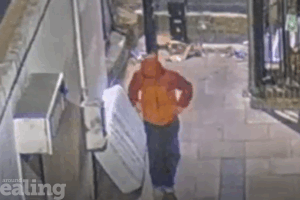Recycling your leftover food waste is more important than you might think. It makes a big difference
to the environment, it can create power for homes, and it saves us all money. Most people are doing it – are you?
Some people do not realise that one of the simplest ways they can make a difference to the planet – and to their pockets – is to stop throwing food waste in the rubbish bin.
Food thrown in the bin instead of being recycled has a big, negative impact.
It ends up in landfill, where it creates harmful gas (methane) and pollution (leachate, or ‘bin juice’) as it rots.
Every tonne of food waste sent to landfill instead of being recycled also has a knock-on effect for everyone’s council services because it results in a ‘landfill tax’ – effectively a fine. It is money that would be better spent elsewhere and could also impact on council tax rates.
But it does not have to be this way, because leftovers and out-of-date food can actually be a force for good. You just need to recycle it instead of dumping it.

Most households in the borough can use the council’s weekly food waste collection. It is easy. All you have to do is place your leftovers, scrapings, tea bags, peelings and out-of-date food in your green food waste bin, and put the bin out on your collection day each week.
As you can see in the graphic on this page, all of the food recycling that Ealing Council collects is taken to a special processing plant – where it is broken down and gets converted into electricity that gets pushed into the national grid to heat and light homes.
What is left is used as fertiliser for farms. None of it goes to waste.
Waste less, save money
Another way to help is to throw away less food in the first place.
In the UK, we throw away seven million tonnes of food and drink from our homes every year, a lot of which could have been used. This costs the average household £470 a year.
There are two main reasons why we throw away good food: We buy or make too much or we do not use it in time. Remember:
- The ‘Use by’ date on food packaging is about safety
- ‘Best before’ date is about quality
- Freezing acts as a pause button. You can freeze pretty much everything. It is safe to freeze food up until the use by date.
Find out more at www.food.gov.uk or www.lovefoodhatewaste.com







